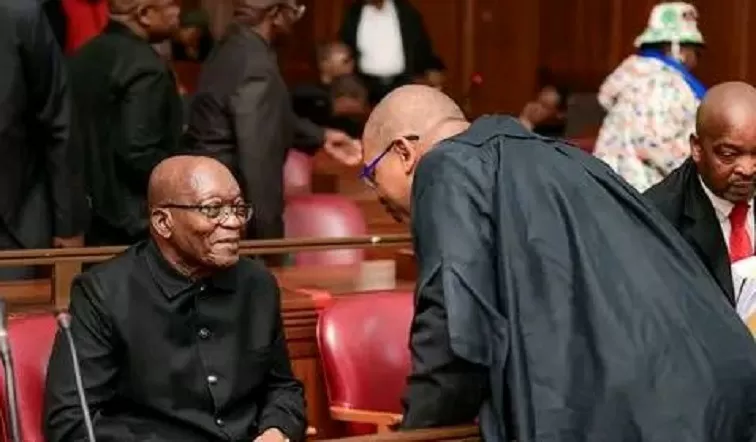Advocate Tembeka Ngcukaitobi (SC) has recently made headlines for his argument that the Electoral Act grants the Independent Electoral Commission (IEC) extensive powers. This statement has sparked a debate among legal experts and politicians, with some supporting and others opposing his views.
In a recent court case, Advocate Ngcukaitobi, who is known for his expertise in constitutional and human rights law, argued that the IEC has the authority to make decisions that are in the best interest of the country and its citizens. He further stated that the Electoral Act gives the IEC the power to regulate and manage all aspects of the electoral process, including the registration of voters, the conduct of elections, and the announcement of results.
This argument has been met with both praise and criticism. Some have commended Advocate Ngcukaitobi for his bold stance and for shedding light on an important issue that has been overlooked for far too long. Others, however, have raised concerns about the potential abuse of power by the IEC and the lack of checks and balances in the electoral process.
Advocate Ngcukaitobi’s argument is based on Section 190 of the Constitution, which states that the IEC is an independent and impartial body that must manage elections and ensure that they are free and fair. He argues that this provision gives the IEC the power to make decisions that are necessary for the proper functioning of the electoral process, even if they are not explicitly stated in the Electoral Act.
Furthermore, Advocate Ngcukaitobi pointed out that the IEC is accountable to Parliament, which has the power to review and amend the Electoral Act if necessary. This, he believes, is a sufficient safeguard against any potential abuse of power by the IEC.
Supporters of Advocate Ngcukaitobi’s argument believe that his interpretation of the Electoral Act is in line with the principles of democracy and the rule of law. They argue that the IEC, as an independent body, must have the power to make decisions that are in the best interest of the country, without interference from political parties or other external forces.
On the other hand, those who oppose Advocate Ngcukaitobi’s views argue that the IEC should not have such extensive powers, as it could lead to a situation where the electoral process is manipulated for political gain. They believe that the Electoral Act should clearly define the powers and responsibilities of the IEC to prevent any potential abuse of power.
Despite the differing opinions, one thing is clear – the role of the IEC in the electoral process is crucial, and its decisions can have a significant impact on the outcome of elections. Therefore, it is essential to have a thorough understanding of the powers and responsibilities of the IEC to ensure that the electoral process is fair and transparent.
In light of this debate, it is crucial for the government and Parliament to review the Electoral Act and clarify the powers and responsibilities of the IEC. This will not only provide clarity but also ensure that the IEC operates within the boundaries of the law and is accountable to the people of South Africa.
In conclusion, Advocate Tembeka Ngcukaitobi’s argument has sparked an important conversation about the powers of the IEC and the need for transparency in the electoral process. While there may be differing opinions on the matter, it is essential to find a balance between giving the IEC the necessary authority to carry out its duties and ensuring that there are sufficient checks and balances in place. As a nation, we must strive for a fair and democratic electoral process, and this can only be achieved through open and constructive dialogue.


